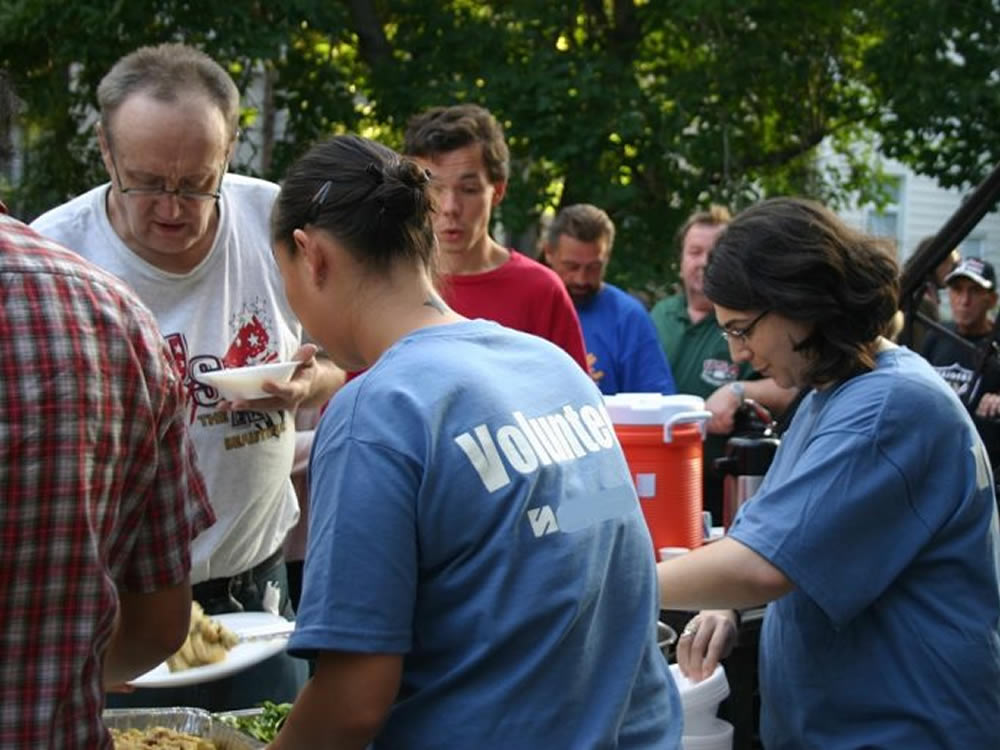With the holidays approaching, we give thanks for our blessings and our thoughts turn to helping the individuals and causes we care most about.
SageVest Wealth Management can be an active partner in helping you define thoughtful giving strategies. To strengthen this objective, we recently hosted Eileen Ellsworth, President of the Community Foundation for Northern Virginia. Eileen discussed the benefits of giving, common questions to consider when choosing a charitable organization, and she offered some useful insights on how to enhance your giving experience and the impact your gifts can make.
The number of non-profits continues to grow each year. This is wonderful news when you consider the many meaningful causes that are garnering purposeful support. However, it also makes it more confusing for you to choose a worthwhile organization to support. This is one of the primary concerns that donors face when considering charitable giving:
- They are confused by the ever-increasing number of non-profits from which to choose.
- They feel that they lack information on the real, as opposed to perceived, needs of their community.
- They wonder if their giving has an impact and truly makes a difference.
- They wonder how much is enough.
All of these concerns can be readily addressed with sound advice, careful planning, and wise decisions.
Some people elect to do their own research. This includes evaluating the cause, examining results achieved, reviewing financials, meeting with the management team, and more. Others prefer to partner with groups that provide these and other resources to enrich your giving experience.
Community Foundations
If your beliefs are founded on the adage that ‘charity begins at home’, Community Foundations offer an array of valuable resources that can make your gift more impactful at the local level. They generally conduct in-depth research on the critical needs of the region they serve and, through their grant-making programs, they perform due diligence and evaluations of the charities and programs established to address those needs. These resources can help you to identify and select strong local non-profits that are working effectively to serve your community, thus ensuring that your gift really makes a difference to those in need.
Community Foundations generally offer a number of channels for giving, including donor advised funds, discretionary grant funds, and giving circles.
Giving Circles
Giving circles are a form of collective philanthropy, bringing together like-minded individuals in support of a specific charity, regional need, or field of interest e.g., STEM education or poverty relief. They may be comprised of a closed circle of friends, or a wider group of people whose members share similar demographics e.g., business women or young professionals.
Giving circles provide many benefits to participants. They offer affordable giving levels for individual members. These are then pooled in order to have a more significant impact, either by awarding a limited number of large grants or a larger number of smaller grants to rigorously vetted charitable grantees. Giving circles inspire greater charitable involvement with your chosen cause, as well as helping you to develop new networks of friends and business connections who share similar interests and values.
Donor Advised Funds (DAFs)
A donor advised fund (DAF) is a philanthropic vehicle that allows you to ‘pre-fund’ your charitable giving now, while offering you the flexibility to disburse grants to organizations in future years.
We often recommend establishing a DAF if you have experienced a significant taxable event e.g. the sale of a business, large stock vesting, or an unusually high income year. This is because contributions to the fund receive an immediate tax deduction. Typically, DAFs are funded using appreciated securities rather than cash, to further leverage your giving potential.
Funds remaining at the time of your death can be designated in advance to your chosen charities, leaving a legacy of giving via your bequest.
Furthermore, DAFs can also help to reduce charitable solicitations, by allowing you to make anonymous donations to your selected causes.
Other ways of giving
Not all giving is financial.
Consider volunteering your time, skills, or knowledge. This is the best way to get to know an organization and is mutually rewarding for both your chosen cause and you. Volunteer options are generally wide and varied: You can help at a soup kitchen, tutor children and adults, assist with relief efforts, and more. You can also offer pro-bono professional services as a book-keeper, computer whiz, or grant writer. By donating your time and skills, you help reduce the organization’s operational costs. You can’t deduct your time, but you can deduct your travel expenses, so be sure to keep a log.
You can also make in-kind donations to a charity – although it’s always best to ask if they need what you want to give, or if they have a ‘wish-list’ of needed items. Be sure to keep a record of what you give for taxation purposes, and share the value of your in-kind donation with your chosen non-profit, as they will need it for their accounting.
Other resources
To view a list of giving circles in the Washington, DC area, click SageVest Wealth Management Giving Circle Resources in MD, VA and DC 2018 .
IRS Publication 561 helps determine the value of your donated property.
IRS Publication 526 helps determine if your donation is tax deductible.
“Do More Than Give” by L. Crutchfield, J. Kania & M. Kramer
“Charity Case: How The Nonprofit Community Can Stand Up For Itself And Really Change The World” by Dan Pallotta
“Toxic Charity: How Churches & Charities Hurt Those They Help, And How To Reverse It” by Robert Lupton
“The Way We Think About Charity Is Dead Wrong” by Dan Pallotta, TED Talk 2013
How To Start A Women’s Giving Circle is AARP’s guide to organizing your own giving circle, from recruiting members to granting funds.




